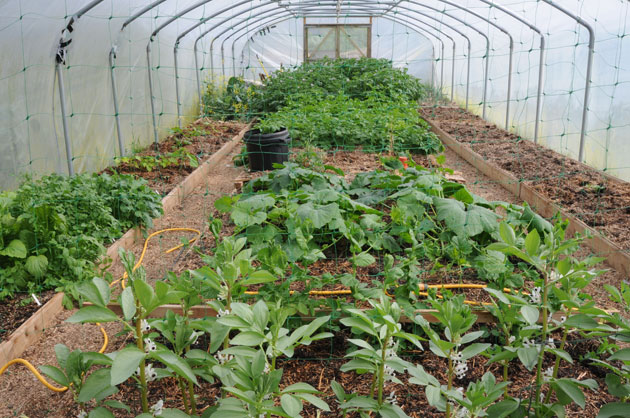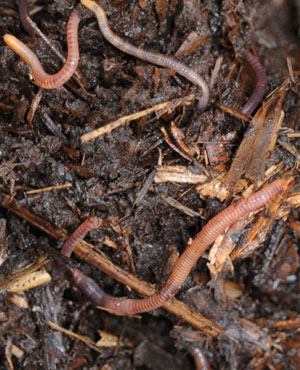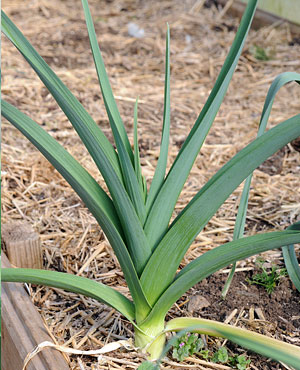Welcome to Relaxed Farming
- Alpacas
- Chickens
- Dairy Goats
- Ducks
- Geese
- Pigs
- Pygmy Goats
- Quail
- Rabbits
- Sheep
- Turkeys
- Polytunnel
- Photo Stories
- Video Stories
- Food
- Smallholding Map
The Relaxed Farming Polytunnel: All about the polytunnel
|
All about the polytunnel
See below
|
The polytunnel build
Click to read more
|
The polytunnel plan
Click to read more
|
The polytunnel year
Click to read more
|
The planting year
Click to read more
|
|
What is a polytunnel?A polytunnel is a frame, usually made from steel tubing, covered by a polythene film - see the photo of our polytunnel below. This creates an atmosphere of still air which is warmed by solar energy (the sun), creating a warm microclimate. A polytunnel can get very cold in winter (polythene is not a good insulator), and the plants may need additional fleece or other protection from frost. In summer the polytunnel can get very hot (as we are writing this it is the middle of July and the temperature in our polytunnel is 45°C). However, the polytunnel keeps the strong winds and heavy rain off the plants, and is really rather nice to pop into and do some planting when it is wet outside!! Why do we need a polytunnel? Living at 300m above sea level in the South West of England we get a lot of rain and wind. The first year we lived here we tried growing root crops (potatoes, carrots etc) and brassicas (cabbage, cauliflower and so on) but found that the heavy rain and the strong winds were too much for the plants, and the crop we harvested was very poor. We also had problems with the wild rabbits eating our crops, usually in the evening just before we were going to pick the veg!! Why do we want a polytunnel? Whilst we could pop into the local shop, drive down to the next village or into the local supermarket (20 minutes drive away) to buy our weekly shop we wanted to see just how much of the food we eat we could produce ourselves. We knew that we would only be eating vegetables that were in season (typically our courgettes last from March through to September), and that some of the produce may not look 'perfect' - but after a wash and a scrape it would still taste delicious... Does it work? We think so - we still have to buy in some essentials such as cooking oil, flour and fruit, but we really do enjoy popping down to the polytunnel to pick fresh vegetables for lunch or supper. An omelette with home grown peas and asparagus together with a side plate of salad, cucumber and goats' cheese is worthy of a gold medal!! June in the polytunnel  |
Our compost heap is alive with worms!
Poo, wee, straw and old vegetables from the polytunnel, all mixed together and left for a few months becomes excellent compost.
 Leeks
Harvested from October through until April, leeks are great in soups and stews.

|